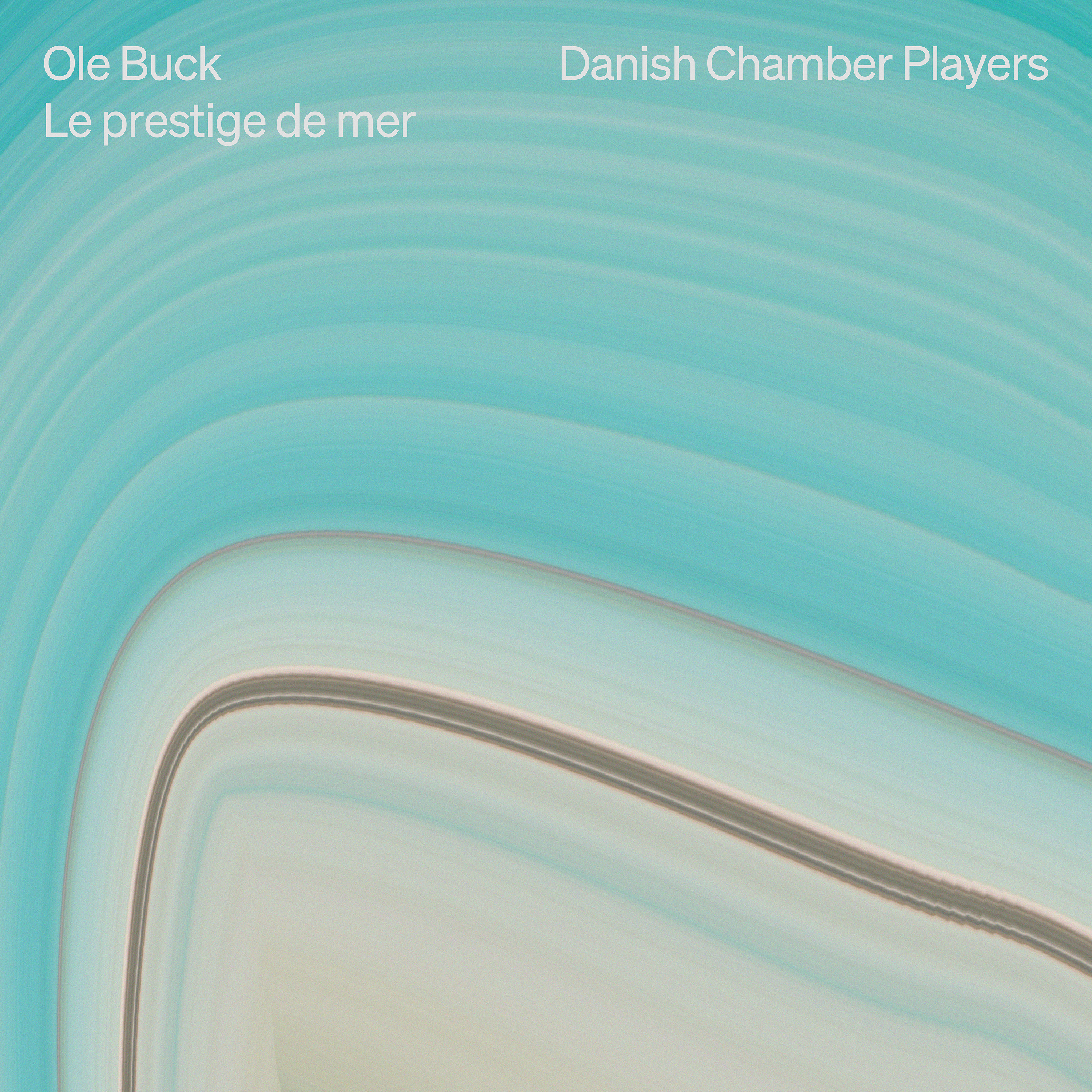Le prestige de mer
Le prestige de mer
Ole Buck is considered one of the best-kept secrets in Danish contemporary music and is celebrated for his refined and meticulously crafted works. His Le prestige de mer (2023), written for the Danish Chamber Players, is a one-movement chamber piece inspired by the Normandy coast, where the raw power and beauty of the sea converge. With its atmospheric portrayal of the sea’s grandeur and mystery, the work stands as a compelling tribute to one of nature’s greatest forces.
World premiere recording. Digital-only EP.
-
mp3 (320kbps)16,00 kr.mp3€2.14 / $2.55 / £1.86Add to cart
-
FLAC 16bit 44.1kHz20,00 kr.CD Quality€2.68 / $3.19 / £2.32Add to cart
-
FLAC 24bit 176kHz34,00 kr.Studio Master +€4.55 / $5.43 / £3.94Add to cart

Alone in Being Oneself
By Søren Schauser
‘Noble simplicity and quiet grandeur.’ These words are a timeworn description of ancient art but seem just as fitting for the music of Ole Buck. The composer of Le prestige de mer (2023) always expresses himself with the bare minimum of means, never making his pieces more intricate or louder than strictly necessary.
This approach has been groundbreaking. Observers over half a century ago spoke of the New Simplicity in Danish music. Ole Buck was the first in Denmark to open the avant-garde to a lyrical and more accessible expression. The time called for contemporary music that blended avant-garde experimentation with evocative imagery. Music that embraced all the tools of modernity while remaining reasonably accessible and atmospheric was now possible! A legendary piece like the unassuming Summertrio (1968) for flute, guitar, and cello ultimately gave Danish music its own unique voice.
Ole Buck’s understated style carries a Schubertian quality. Like Schubert, his works begin as if from a place of silence, from a spiritual starting point devoid of significance or tradition. ‘I wipe the slate clean and begin with emptiness,’ he once said – much like a composer of Romantic lieder might.
One thing, however, precedes his music: his lifelong inspiration from nature and the changing seasons. His extensive catalogue brims with flowers and landscapes. Yet this inspiration does not imbue his music with vivid colours or the dynamic interplay of natural forces. The flowers – again, akin to early Romantic composers – tell us more about the observer than the observed. Similarly, Ole Buck’s landscapes evoke quiet moods and vague recollections rather than naïve tone-painting.
Simplicity must have its space. Ole Buck allows only one thing to happen at a time, inviting us to sense, reflect, and reconcile ourselves with everything. Summer, as a result, holds a special place in his music. Buck’s summery idylls reject the relentless demand for ‘purpose’ in all things. Spring awakens us, autumn ages us, and winter brings death – but summer allows us to focus on existence itself, for its own sake.
Le prestige de mer, written for eight instruments, is inspired by the Normandy coastline. As a young man, the composer travelled through France and ventured west to the sea. Passing through a village on his way back, he came across a postcard featuring a dramatic scene: a man navigating the rugged coast from rock to rock amidst crashing waves. On the back of the postcard, the words ‘Le prestige de mer’ were written. That title would later become the name of Ole Buck’s piece. ‘It couldn’t have been described better,’ he remarked. ‘Everyone holds a profound respect for the sea, both awe and admi- ration.’ Yet even such a dramatic spectacle finds expres- sion in his music almost entirely in pianissimo – again, reminding us that, in the end, we are alone in the world, alone with our memories from long ago.
Søren Schauser is an author, philosopher and music historian.
